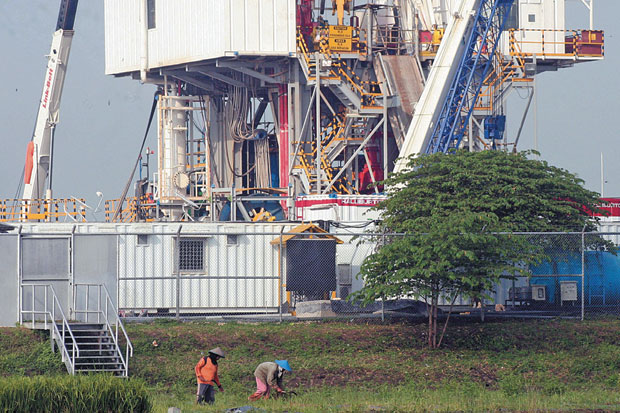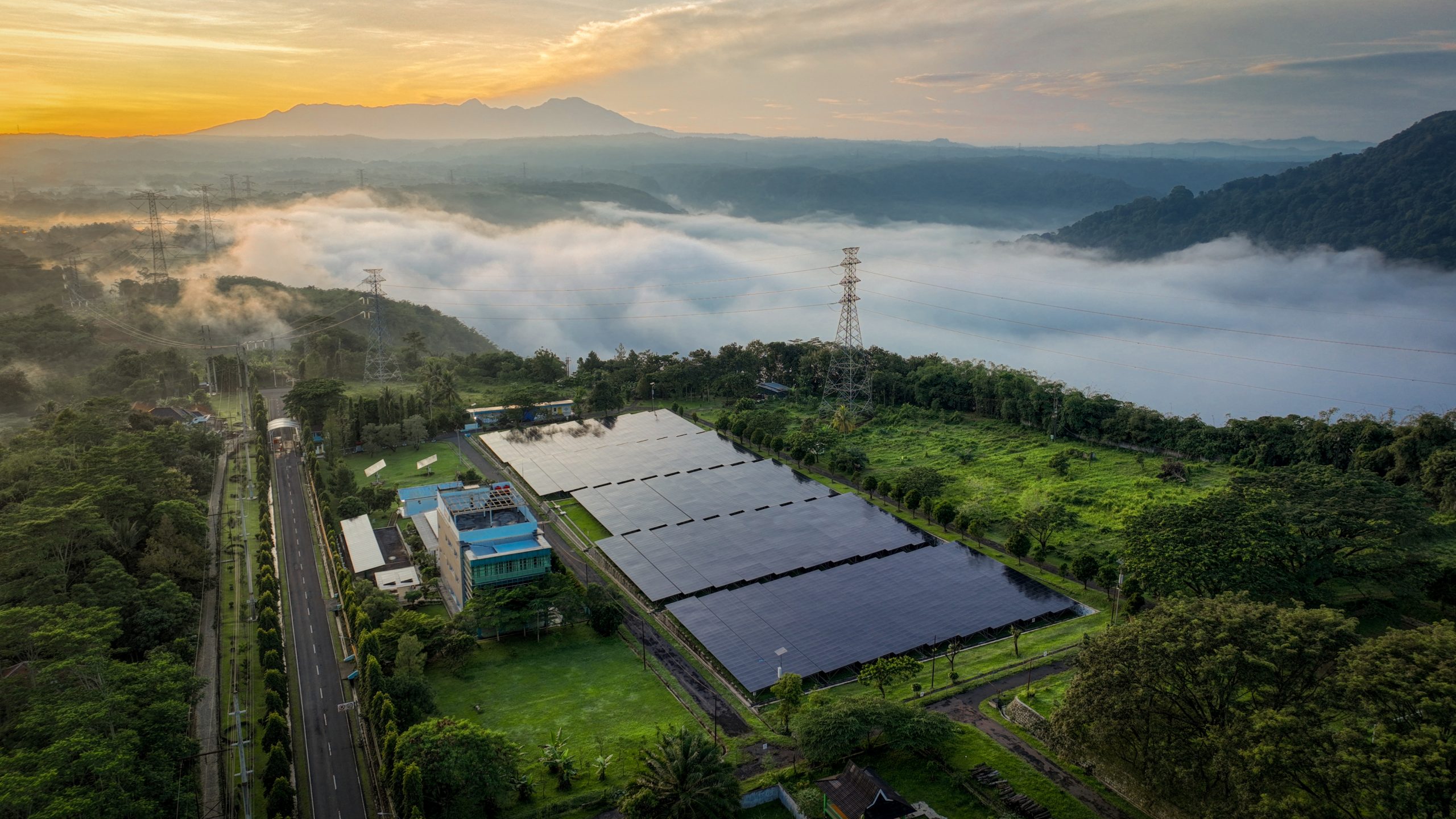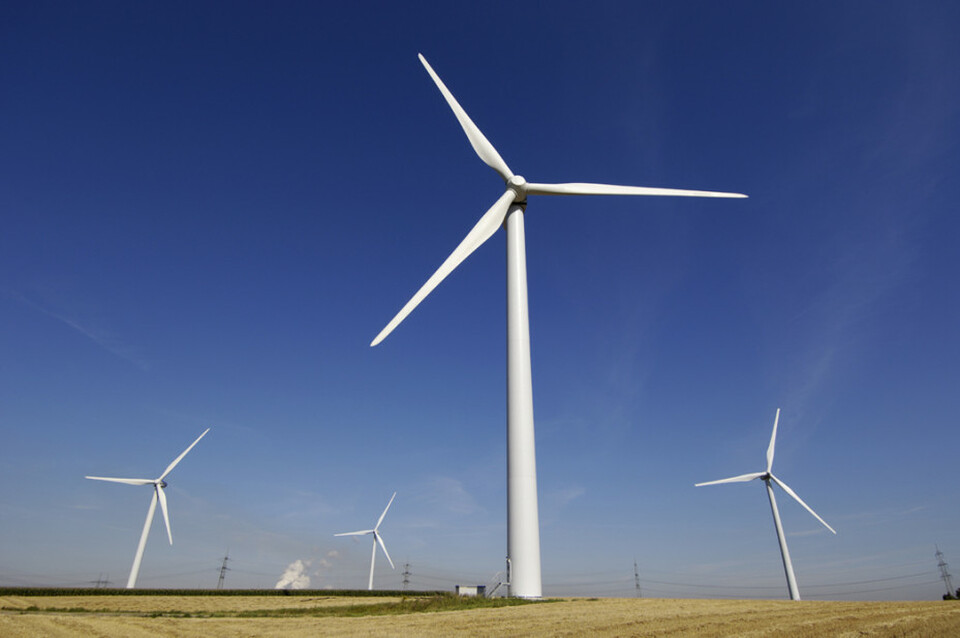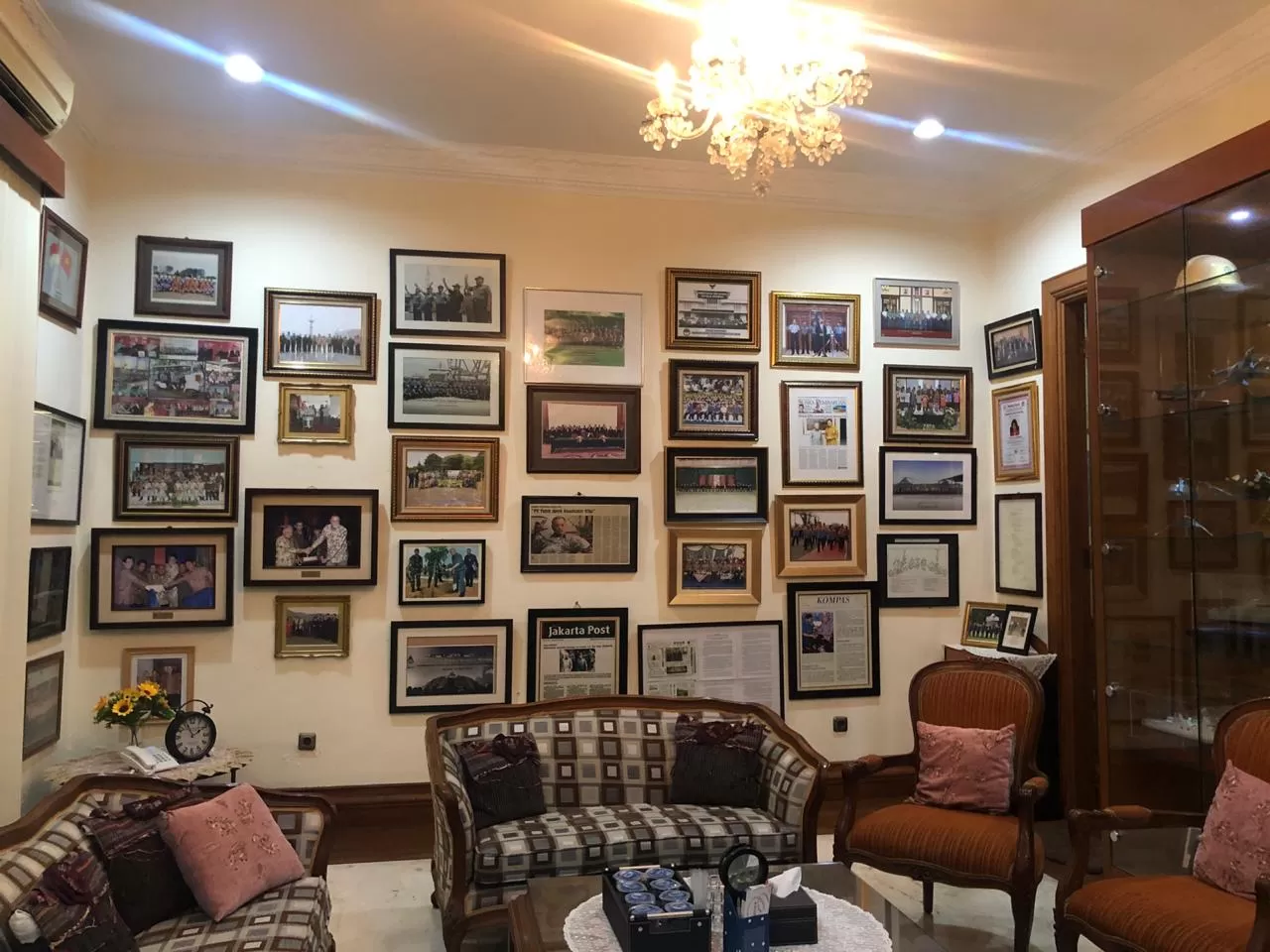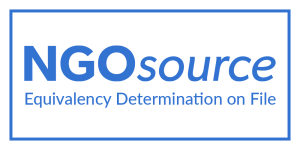Figure 1. Mr. Rida Mulyana (in the middle) took a photo together with the speakers of The High-Level Discussion Session.
“The cheapest and cleanest energy is the energy we do not use.” This quote is reasonable when people tried to find alternative solutions for energy issues. Although the energy issues will vary in each country, but generally it is usually about three main energy issues: the energy scarcity; the energy price; and the environmental issues. People often only focused on the supply side, on how to provide enough energy to fulfill the demand with not only reasonable price but also environmentally friendly kind of energy. However, there actually another way to help resolve the energy issues by decreasing the energy demand through energy efficiency and conservation. IECES (Indonesia Energy Conservation and Efficiency Society) or MASKEEI (Masyarakat Konservasi dan Efisiensi Energi Indonesia) as the organization which focuses on energy efficiency and conservation tried to promote it throughout Indonesia by organizing IEECCE (Indonesia Energy Efficiency and Conservation Conference & Exhibition). The 2nd IEECCE “The Global Energy Transformation Changing Industries, Buildings, Mobility Toward Sustainability” was held on September 18-9, 2018 at Balai Kartini, Jakarta. Some companies and institutions joined the event and opened booth in the exhibition, such as Ministry of Mineral and Energy Resources (MEMR), Swedish Energy Agency, Microsoft, MASKEEI, ATW Solar and Smart Powerpax Indonesia. While for the conference, many experts participated in the two day event which divided into one “Group High-Level Discussion”; three “Technical Session” and eight “Plenary Session.”
In the first day, the event was opened by Rida Mulyana as the Director of General of New Renewable Energy and Energy Conservation, MEMR. He stated the importance of developing energy efficiency and conservation due to the limitation of fossil energy, especially in Indonesia. Indonesia’s fossil energy reserves are declining at a constant rate such as oil is predicted will be run out in 2028, while coal and gas will be run out in 2036 and 2067 respectively. He also appreciates this event and wishes that Indonesia could learn from other countries on how to manage their energy efficiency and adopt the energy conservation technology. The chairman of MASKEEI, Mr. Jon Repati discussed the disruption of industry sector due to the vast technology advancement in the worldwide. Smart city, electric car and artificial intelligence are starting to compete in the global market and Indonesia should be prepared with the changing. After the opening session, the event was continued by the plenary session about “On policies, expected impacts, and future trends.” This Plenary Session reviewed generally and discussed the latest EEC support policies issued or being planned to be issued, particularly in the Industries, Mobility, and Building Sectors; the lessons learned from the implementation of the policies and Looks into the future of possible stronger efforts taken by the emerging economy and globally. Next was the Group High-Level Discussion about the “Responding to the challenges” in the EEC. After the lunch break, the Plenary Session about “Industry in the era of disruptive innovations” was conducted. This session looked closely into the concept, development, and practices of digitizing the economy in the industry, mobility and building sectors. Then continued by another Plenary Session about “E-mobility” which focused on the current development of the transformation in the Automotive Industry and the challenges of managing the disruptive process. The day one was closed by the Technical Session about “Industry.”
In the second day, the first three sessions were Plenary Session. The first Panel Session was about “Developing smart and sustainable cities.” The Concept of Smart and Green Cities have gained popularity and supports by the citizen particularly in the developed economy. This first session in the day 2 focused on the real experiences of City Administrations in building smart and sustainable cities and discuss the specific challenges that have been met and overcome in converting the concept into reality, and show the positive evidence that such concept works to help reduce the energy demand. The second Panel Session was “The finance challenges” and discussed on how to make the financial sector more interested and see the merits of energy efficiency efforts, not only in helping to reduce the impacts of climate change but to help the economy to run more efficiently. The next Panel Session was about “The challenge of disruptive technology.” Businesses using the internet platform or increasingly rely on the internet are vulnerable to the disruption that is happening in the energy sector. This session looked closer into the challenges and opportunities for the particular industries in implementing energy efficiency and conservation for their sustainability. After the three panel sessions, the event was continued with two Technical Session about “Mobility” and “Industry and Building.” The last session was another Plenary Session which brought a topic about “The way forward.” This Final Session reviewed the overall result of the two days agenda and also be the closing session.
